MIT researchers design glue that mimics the sticky substance barnacles use to cling to rocks.
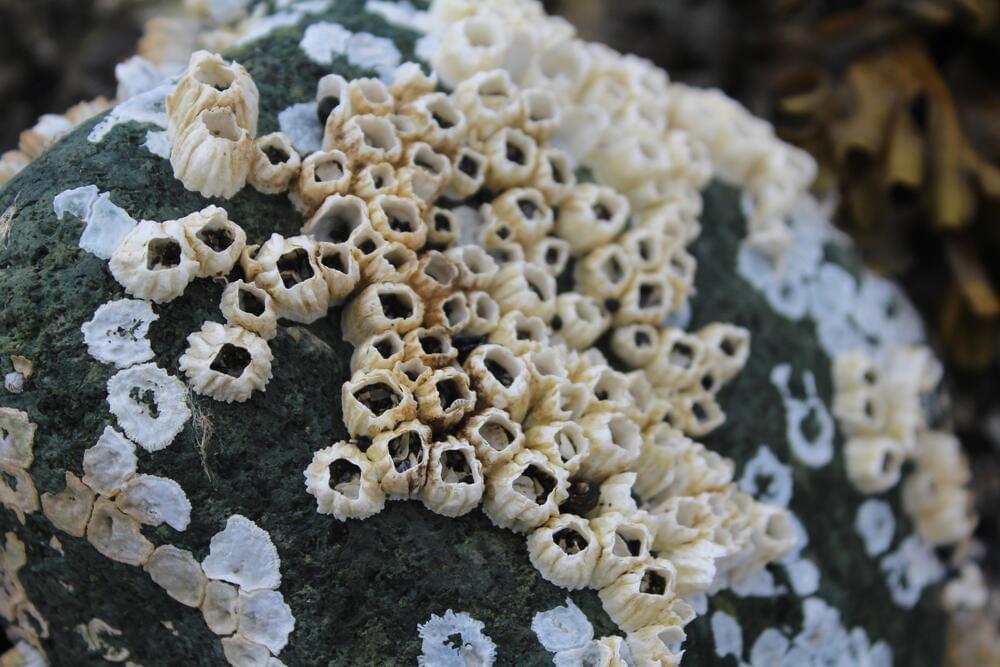

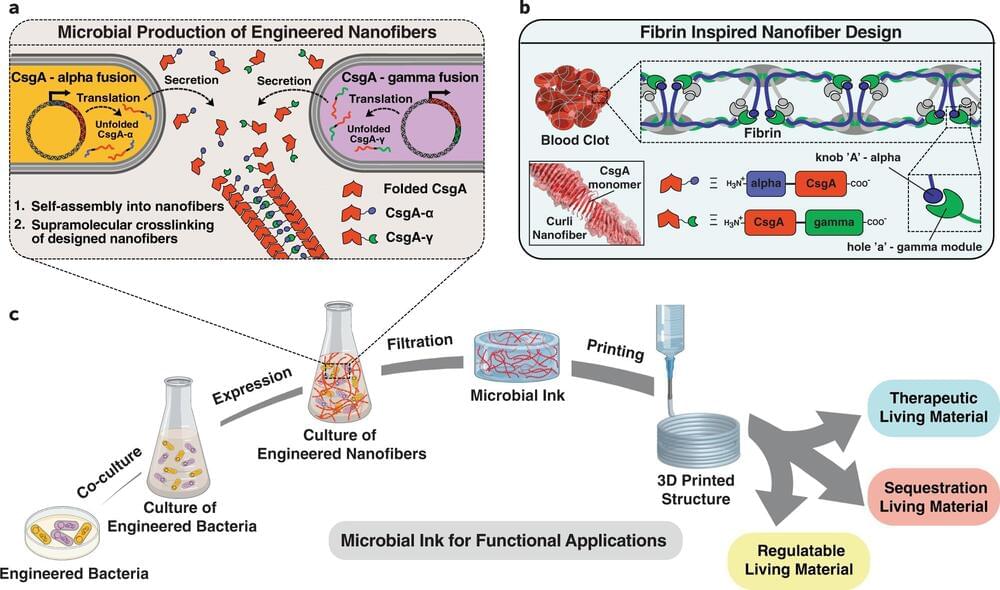
A team of researchers from Harvard University and Brigham and Women’s Hospital, Harvard Medical School, has developed a type of living ink that can be used to print living materials. In their paper published in the journal Nature Communications, the group describes how they made their ink and possible uses for it.
For several years, microbial engineers have been working to develop a means to create living materials for use in a wide variety of applications such as medical devices. But getting such materials to conform to desired 3D structures has proven to be a daunting task. In this new effort, the researchers have taken a new approach to tackling the problem—engineering Escherichia coli to produce a product that can be used as the basis for an ink for use in a 3D printer.
The work began by bioengineering the bacteria to produce living nanofibers. The researchers then bundled the fibers and added other ingredients to produce a type of living ink that could be used in a conventional 3D printer. Once they found the concept viable, the team bioengineered other microbes to produce other types of living fibers or materials and added them to the ink. They then used the ink to print 3D objects that had living components. One was a material that secreted azurin—an anticancer drug—when stimulated by certain chemicals. Another was a material that sequestered Bisphenol A (a toxin that has found its way into the environment) without assistance from other chemicals or devices.


The plant-based antiviral agent thapsigargin (TG), derived from a group of poisonous plants known as ‘deadly carrots’, appears to be effective against all variants of SARS-CoV-2 in the lab – and that includes the quick-spreading Delta variant.
A previous study published in February demonstrated that TG can be effective against a host of viruses. Now, this latest work by the same research team confirms that the antiviral also isn’t being outflanked as SARS-CoV-2 evolves. With the emergence of new variants an ongoing possibility, it’s intriguing to observe the continuous efficacy of TG.
In tests on cell cultures in the lab, doses of TG delivered either before infection or during active infection were shown to block and inhibit SARS-CoV-2 variants, triggering a broad and powerful protective response.
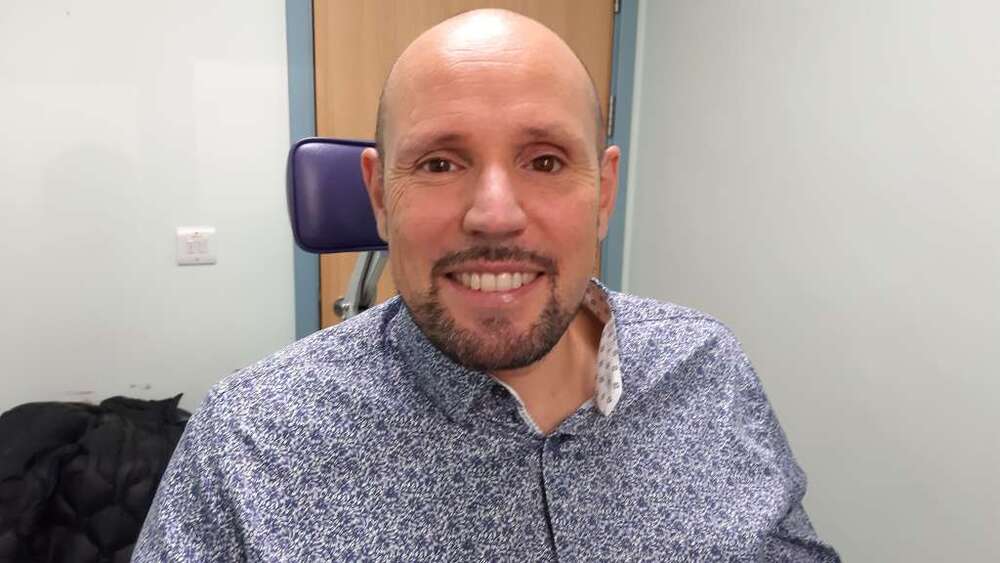
(CNN) — A British man has become the first patient in the world to be fitted with a 3D printed eye, according to Moorfields Eye Hospital in London.
Steve Verze, who is 47 and an engineer from Hackney, east London, was given the left eye on Thursday and first tried it for size earlier this month.
Moorfields Eye Hospital said in a press release Thursday that the prosthetic is the first fully digital prosthetic eye created for a patient.
A new Artificial Intelligence model manages to do complex physics simulations in real time with only using a fraction of the power that a traditionally computed simulation would use. These simulations could soon be used for things like biotechnology, gaming, weather predictions and more. Two Minute Papers has done several videos on it before, but this is a more complex AI with a wider range of applications.
–
TIMESTAMPS:
00:00 The Future of Advanced Physics Simulations.
01:57 How this new approach to AI works.
04:03 Are medical simulations a possibility?
06:02 Last Words.
–
#ai #physics #simulation

The Seoul Metropolitan Government (SMG) is the first local government in Korea to establish a metaverse platform, which has emerged as a contactless communication channel in the post-pandemic era, to start providing a new-concept public service by using the platform in its administration.
The SMG plans to establish “Metaverse Seoul” (tentatively named), a high-performance platform, by the end of next year, and create a metaverse ecosystem for all areas of its municipal administration, such as economic, cultural, tourism, educational and civic service, in three stages from next year.
Starting with the pilot program of a Bosingak Belfry virtual bell ringing event at the end of this year, the SMG will consecutively provide various business support facilities and services, including the Virtual Mayor’s Office, Seoul FinTech Lab, Invest Seoul and Seoul Campus Town, on its metaverse platform.
Sensors introduce an important new method to spot bio-marker for brain diseases Accurate timings of when brain signals fire demonstrated for the first time by the Sussex scientists, which has implications for tracking the onset of brain disease The quantum brain sensors could present a more efficient and accurate alternative to EEG and fMRI scanners.
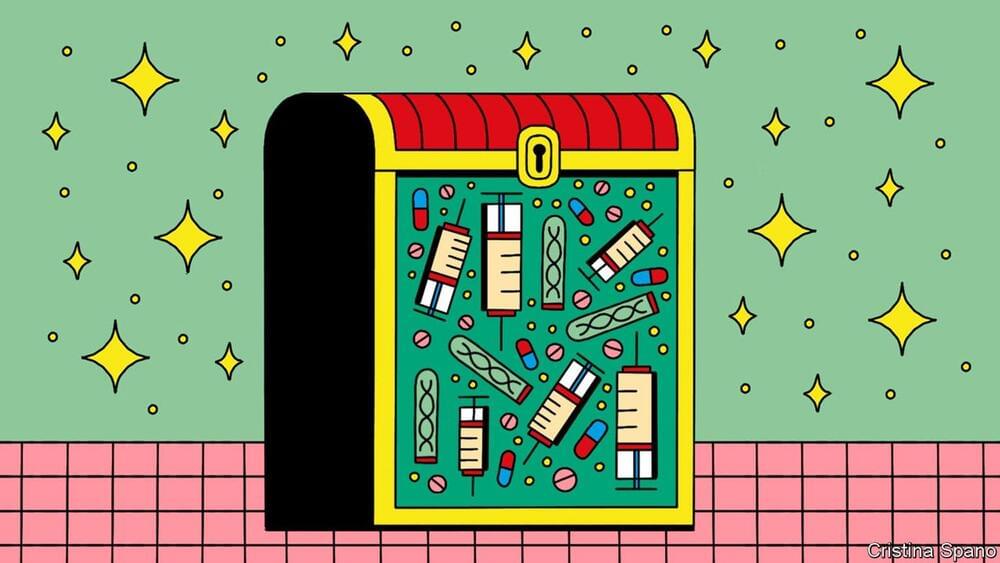
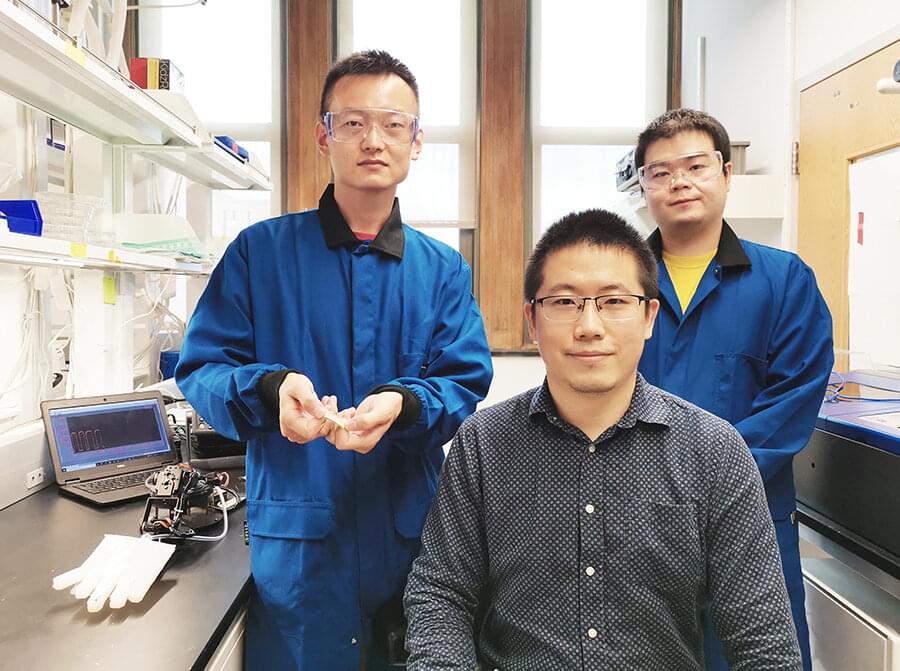
In the future, soft robotic hands with advanced sensors could help diagnose and care for patients or act as more lifelike prostheses.
But one roadblock to encoding soft robotic hands with human-like sensing capabilities and dexterity has been the stretchability of pressure sensors. Although pressure sensors—needed for a robotic hand to grasp and pick up an object, or even take a pulse from a wrist—have been able to bend or stretch, their performance has been significantly affected by such movement.
Researchers at the Pritzker School of Molecular Engineering (PME) at the University of Chicago have found a way to address this issue and have designed a new pressure sensor that can be stretched up to 50 percent while maintaining almost the same sensing performance. It is also sensitive enough to sense the pressure of a small piece of paper, and it can respond to pressures almost instantaneously.